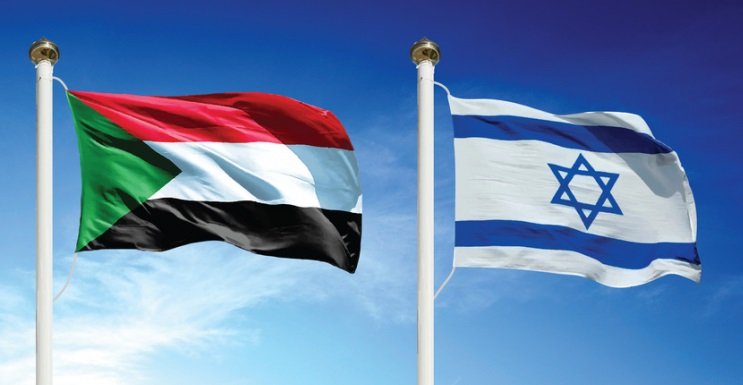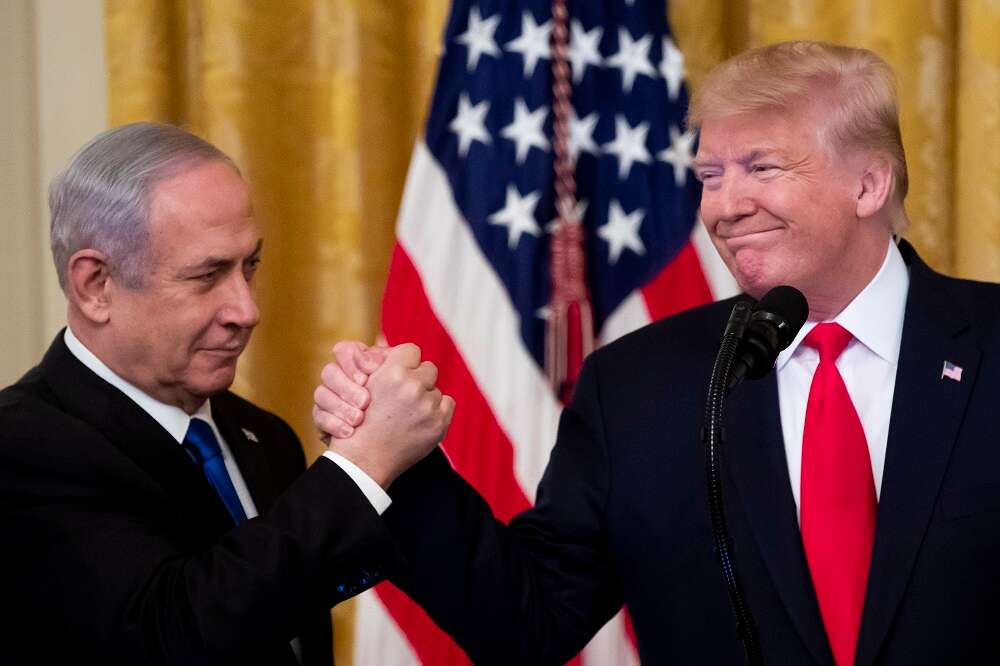The growing isolation of anti-Israel forces in the Middle East
The word "Sudan" means "black" in Arabic (bilad as-sudan means "Land of the Blacks"). Over hundreds of years, Sudan was infiltrated by Islam. Essentially, all of East Africa used to be called "Cush," which is traditionally considered the eponymous ancestor of the people of the "land of Cush," an ancient territory that is believed to have been located on either side or both sides of the Red Sea. As the centuries passed, three main population groups formed. Islam, in its flexibility, joined two of these groups together.US amb. to Israel: Change of administration can damage Abraham Accords
One group was the Arab Muslims in the fertile, wealthy northern part of Sudan, and the other was the Africans who were converted to Islam but to this day pass on the harsh memories of the days they were hunted by slave traders. Another group, in the southern part of Sudan, consists of black Christians who essentially formed the bridgehead for relations with Israel during the premiership of Golda Meir.
The relations that developed at that time formed complexities that are difficult to comprehend. On one hand, Israel sent Mossad agents led by David Ben Uziel ("Tarzan") to help the Christians in South Sudan defend themselves against genocidal campaigns. Jaafar Nimeiri, who recognized the autonomy of South Sudan in the early 1970s, permitted Ethiopian Jews to immigrate to Israel more than a decade later. He was also the only one in the Arab world who supported former Egyptian President Anwar Sadat when he made peace with Israel. Under Nimeiri's leadership of Sudan, however, an Islamist leader named Hassan al-Turabi rose to prominence. Al-Turabi pushed Sudan toward Islamism and an alliance with Iran immediately after the Khomenei-led Islamic Revolution in 1979.
"Turabi was among those who celebrated Sadat's murder, and his people later tried assassinating [former Egyptian President Hosni] Mubarak," Koren said, noting that a "process of Islamist radicalism had begun." This was the world of al-Bashir and al-Turabi up until 2011. They had a hand – beyond acts of genocide inside Sudan – in efforts to topple moderate Arab regimes. This period of time was disastrous for Sudan. "Bashir's successors, [Abdel Fattah] al-Burhan and [Abdalla] Hamdok, who seized power following the protests that ousted [al-Bashir], essentially followed a path he had set," according to Koren. "Bashir understood his situation was increasingly precarious, and the matter of establishing relations with Israel was part of the answer to this decline."
As early as three or four years ago, voices began emerging and articles began being written in favor of relations with Israel. The important point is that Arab nationalism, followed by the period of Islamism, didn't inculcate the Sudanese population with a hatred of Israel, contrary to countries in the Arab world. Egyptian society, to this day, is imbued with a deep, venomous anti-Semitism.
Swinging a gigantic, vast country (population of 42 million) such as Sudan, which sits on the Red Sea, is an extremely significant geopolitical move. The new Middle East is bustling with realignment in the face of Turkey's Ottoman ambitions and Iranian imperialism. For the first time, it appears the forces predicated on militaristic anti-Israel ideology are becoming isolated.
Ambassador to Israel David Friedman has represented the United States through a period that belies the Middle East’s reputation for stagnation and intransigence. Not without controversy, the region emerged as what is arguably the Trump Administration’s strong suit as a series of “impossibilities” fell by the wayside. The Media Line’s Felice Friedson sat with the ambassador at his residence in Herzliya where they discussed the issues and events that define the Trump term to the Middle East.
TML: American polling raises the specter of a change in US administrations. There’s concern that these achievements we’ve discussed could be walked back. And in particular, pressure on Iran might be lifted. Can the achievements in the Middle East survive a change of a US administration?
Ambassador Friedman: Well, look, I think an administration with a different approach could do huge damage. No question about it. The most obvious area would be with regard to Iran. Iran is on the ropes. They are weakened. They’re far weaker now than they were before we let them off the hook with the JCPO, right? If you let them off the hook again, we will all have to answer to our children and grandchildren as to how we created a terrorist nuclear power, which is what we will do if we let Iran off the ropes right now. So, I don’t want to predict what will happen in the future with regards to a new administration. I frankly don’t think there’ll be a new administration, but look, it’s a big risk. I think it’s important because I think people do tend to politicize this too much, whatever we’ve done with regard to the Middle East has been done because we thought it was in the best interest of the United States.
That’s always been the lens that we’ve looked at everything, what’s in the best interest of the United States? Not what’s on anyone’s political wish list. I would hope that because of that, all the things that we’ve done would be enduring, would stand the test of time. I’ve heard already that there’s no desire to move the embassy back from Jerusalem. Well, of course there shouldn’t be, that’s the national wellness, the Jerusalem Embassy Act. Why would anybody want to do that? Why would anybody want to talk about giving the Golan Heights to a butcher, like Bashar Assad and threaten Israel’s security? I mean, why would anybody want to undo that? By the same token, why would anybody want to take the most threatening malign sponsor of terrorism in the world and fund them? To me, these are easy things that should be perpetuated because they’re great for America, but I do worry.
If Anything Sustains the Arab-Israeli Conflict, It Will Be Progressives’ Antisemitism
While progressives are the ideological grandchildren (to the extent that they possess an ideology) of Marxists, they are members of a cult, the ideological fault lines of which pass not through class but through race and ethnicity. Progressivism borrows a bit from Marxism, but its main weapons are passion and faith, not logic and reason. At its core it is closer to the early Church than to Marx or Lenin.
The belief system of the progressives contains a number of “original sins,” one of which is the establishment of the State of Israel. The Palestinians are viewed as analagous to Jesus: innocents who were sacrificed by the Zionists (or the Jews, if the speaker is not careful enough) on the altar of global white imperialism. Thus every Jew must condemn Israel and Zionism to rid himself of the association.
Given that there will always be Jews who are unwilling to abandon the main tenet of Jewish national identity, the Progressive movement is guaranteed a perpetual enemy. As the movement “matures,” Israel/Zionists/Jews take on more and more diabolical roles unrelated to the Middle East. The Zionists are accused of running the world, its finances in particular, and are presented as the vanguard of white imperialism.
If there is anything the Progressives have thoroughly borrowed from the Soviets, it is intense antisemitism presenting itself as anti-Zionism. The Progressive platform on Jews and Zionism sounds familiar to anyone who read Pravda in the 1970s and 1980s. Intersectionality, the pillar of the Progressive worldview, mandates that enemies be found everywhere, in the most bizarre incarnations.
If the Arab-Israeli conflict is to continue to exist, it will be thanks to the antisemitism of the Progressive movement. Members of that cult will never let the conflict disappear, as to do so would undermine one of their articles of faith.







































